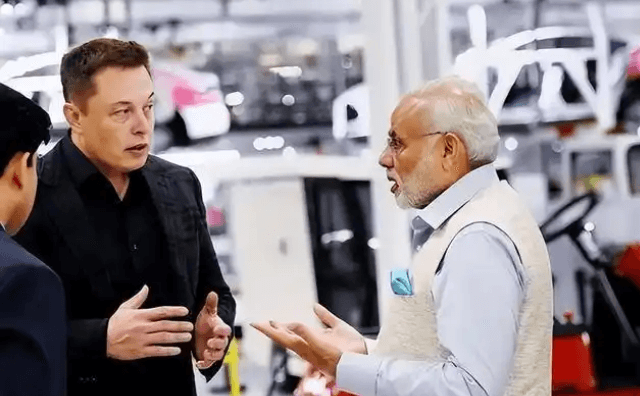The peaceful town of Pahalgam turned into a scene of tragedy on April 22, 2025, as the Pahalgam attack claimed 26 innocent lives. Militants opened fire on tourists, killing 26 people, including 24 Hindus and 1 Nepalese citizen.

This most serious terrorist attack in 25 years has completely driven India into a frenzy: Prime Minister Modi urgently interrupted his foreign visit and returned home, announcing a “combination punch” of retaliation against Pakistan – cutting off water supply, sealing the border, expelling diplomats, and even cutting off all trade channels!
This is the first time that India has torn up the Indus Water Treaty signed in 1960. The “water lifeline” that had not been touched even in the three Indo-Pakistani wars was directly cut off this time.
Pakistan responded strongly: closing its airspace, suspending trade, expelling Indian military advisers, and warning that “cutting off water is a declaration of war”! Tanks gathered on the border between the two countries, aircraft carriers confronted each other, and the shadow of nuclear war loomed over South Asia.

The Spark in Pahalgam
The town of Pahalgam is known as the “Little Switzerland of India” and is a classic filming location for Bollywood movies.
On the afternoon of April 22, when tourists were having a picnic in the valley, gunmen suddenly rushed out of the forest and shot at the crowd at close range. Survivors recalled: “They only shot men, especially Hindus.” A Nepalese tour guide and 24 Indian tourists died on the spot. The scene was covered in blood and helicopters were used to transport the injured.
Indian security forces immediately blocked off the mountainous area and launched a search and capture operation, but the gunman is still at large.
Indian media have pointed the finger at the Pakistan-backed Resistance Front (TRF), saying it is trying to sabotage the revival of Kashmir’s tourism industry.
Pakistani Defense Minister Asif refuted: “This is India’s internal affair and has nothing to do with us!” But the Indian Ministry of Foreign Affairs insisted that the attackers “came across the border” and produced satellite images saying that “the militant training camp is in the Pakistani-controlled area.

India’s “Seven Wounds Fist”
The Modi government announced five major countermeasures on April 23, each hitting Pakistan hard:
Water Cut-off: India suspended the Indus Waters Treaty and closed the sluice gates of the Jhelum and Chenab rivers flowing into Pakistan. These rivers provide 60% of Pakistan’s irrigation. Punjab’s Water Minister warned: “Not a single grain of rice will be grown!”
Border Sealing: Shutting the Attari border crossing cut off ₹26,500 crore in annual trade. Apple traders in India complained: “1.2 lakh tonnes of apples will rot, ₹2,400 crore lost.”
Diplomatic Expulsions: Pakistani nationals were given 72 hours to leave. Medical visas were capped until April 29. Half of Pakistan’s diplomats are being expelled, and 15 military advisors asked to leave.
Economic Strangulation: India imposed a 100% tariff on Pakistani goods, froze rupee settlements, and suspended energy agreements.
Military Mobilisation: Three additional armoured brigades were moved to the Line of Control. BrahMos missiles remain on high alert along the border.

Pakistan held an emergency meeting on the 24th, and Prime Minister Sharif announced “tit-for-tat”:
Air blockade: All Indian flights are prohibited from transiting, cutting off New Delhi’s golden flight routes to the Middle East and Europe.
Trade zeroing: All direct and indirect trade is suspended, even Indian goods re-exported by third parties through Pakistan are blocked.
Diplomatic expulsion: Indian Embassy in Pakistan is limited to 30 people “downsizing”, and the defense attaché is to leave before April 30.
Nuclear deterrence: Defense Minister Asif warned: “Water shortage = war! If the Punjab plains are lost, we will not rule out the use of tactical nuclear weapons!

India Finds Strong Backing :The US and Russia are on India’s side
International forces quickly choose sides:
US: Trump called Modi immediately to “fully support India’s fight against terrorism”. The US and India are secretly discussing the sale of F-35s. If the deal is completed, Pakistan’s old F-16 will be crushed.
Russia: Putin stated that “terrorism must be eliminated” and continued to deliver S-400 missiles to India.
Middle East: Saudi Arabia provides money and Türkiye makes statements, but military aid is limited to “moral support.”
China: While urging “restraint and dialogue,” China warned that any threat to the China-Pakistan Economic Corridor (CPEC) would draw a response. During the 2019 skirmishes, China secretly mediated — whether they step in now remains to be seen.

History repeats itself? Shadow of air combat reappears in 2019
The current situation is exactly the same as after the Pulwama attack in 2019: India launched a cross-border air strike on Pakistan-controlled areas, and Pakistan shot down an Indian MiG-21 and captured pilot Abhinandan.
But this time, India’s advantage is greater:
Military Strength : The Indian army has 1.2 million troops, 600 fighter jets (including 36 Rafale fighters), and aircraft carriers to blockade the Arabian Sea; the Pakistani army has only 650,000 troops and 36 J-10C fighters, and its navy has almost no ability to fight back.
Economic suffocation: Pakistan’s foreign exchange reserves are only enough to sustain for three months. If the port of Karachi is blocked, the supply of oil and food will be cut off, and prices may soar by 500%.
Civilian nightmare
Kashmiri civilians have become the biggest victims:
Humanitarian crisis: India and Pakistan close ports, 5,000 cross-border families lose contact, 27,000 people are unable to visit relatives. The International Red Cross is angry
Criticism: “Violation of the Geneva Convention!”
Food panic: The dry-up of the Indus River may cause a 23% reduction in Pakistani wheat production, and 30 million people face famine. The United Nations warns: “South Asia may see a wave of climate refugees!”
Shadow of nuclear war: Both sides have a total of 335 nuclear warheads. Once fighting breaks out on the Punjab Plains, tactical nuclear weapons may get out of control.

Oil and food prices soar
South Asia’s powder keg shakes the world economy:
Crude oil: New York oil prices rose 2.7% in a single day as the market worried that Pakistan would turn to Iran to buy gas, stimulating transportation risks in the Persian Gulf.
Food: Chicago wheat surged to $12.3 per bushel. Indian and Pakistani wheat accounts for 15% of the global production, and a reduction in production will trigger a food shortage.
Supply chain: India suspends cotton exports to Pakistan, 137 textile factories in Karachi shut down, and fast fashion brands face shortages.


